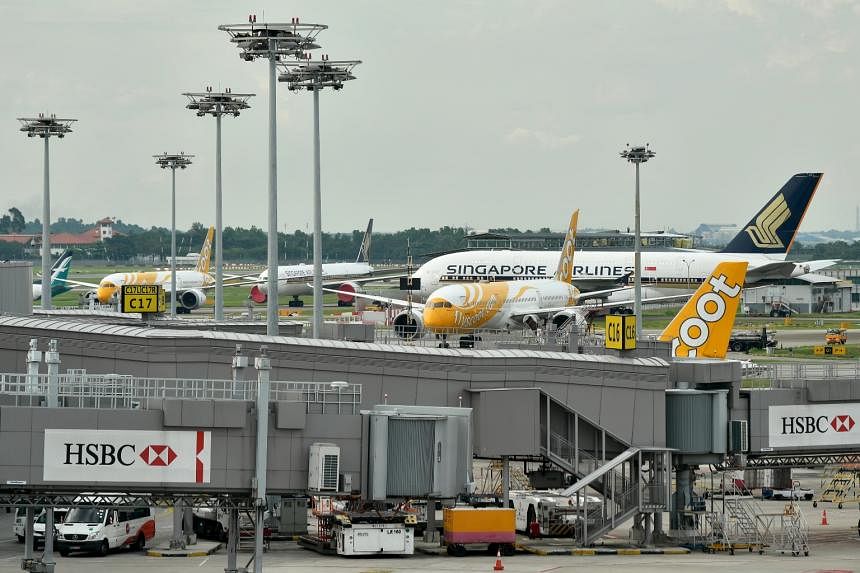SINGAPORE – A credit scheme for greener aviation fuels will be launched in July, so as to give businesses and travellers the choice of paying more to reduce their carbon footprint when they fly and transport goods by air.
The Civil Aviation Authority of Singapore (CAAS), Singapore Airlines (SIA) and Temasek on Wednesday (June 8) said they will begin selling 1,000 credits for purchasing sustainable aviation fuel – eco-friendly fuel made from waste materials such as used cooking oil and animal fats.
The 1,000 credits together will supply all SIA and Scoot flights out of Changi Airport with a blend of sustainable aviation fuel and refined jet fuel for a year, starting from the third quarter of this year.
CAAS, SIA and Temasek did not reveal the cost of each credit, citing commercial sensitivities.
Transport Minister S. Iswaran announced the scheme at Temasek’s Ecosperity conference on Wednesday (June 8).
Sustainable aviation fuels currently cost about three times that of conventional jet fuel, and a credit scheme is one way for airlines and the authorities to defray costs.
CAAS, SIA and Temasek said that in the longer term, it should also help to secure greater demand for sustainable aviation fuels from airlines, supporting the development of the nascent sustainable aviation fuel industry by giving producers more confidence in boosting production.
In the first phase, the credits will be sold to SIA’s corporate customers and freight forwarders, who can purchase the credits directly from the airline.
Freight forwarders, which help to shift air cargo from the airport to their customers, can in turn sell the credits to their downstream clients who wish to reduce carbon emissions from their business operations.
This credit market will later be open to all SIA customers in the fourth quarter of the year. More details will be released then, said SIA.
The aviation industry has committed to achieve net-zero carbon dioxide emissions by 2050. Projections suggest that widespread adoption of sustainable fuels will be key in reducing up to 65 per cent of the sector’s emissions by 2050, with the rest to come from efficiency gains and other potential new technologies.
Temasek’s managing director of sustainable solutions Frederick Teo said the credits are essentially a way of crowd financing to reduce the cost of these cleaner fuels.


